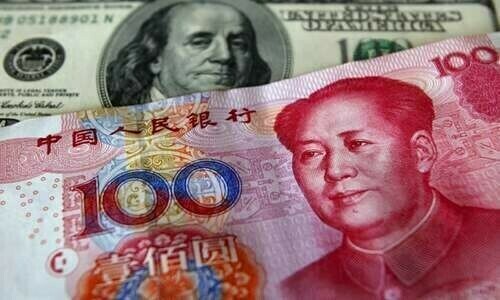KARACHI: According to financial experts, the government’s inability to issue Euro and Panda bonds may put the economy under pressure, which may prevent the nation from receiving improved ratings from international rating agencies.
“The public authority is yet not ready to send off securities in the global market to raise dollars because of unfortunate country appraisals given by the worldwide rating organizations,” expressed sources in the monetary area.
Last month, the finance minister and governor of the State Bank of Pakistan met with top rating agencies in Washington to convince them that the economy’s macroeconomic numbers have improved. However, no positive outcome has yet been observed.
Pakistan’s rating has already been raised by one notch by two rating agencies. On Jul 29, Fitch overhauled Pakistan’s drawn out guarantor rating by one indent to CCC+, and on Aug 28, Moody’s redesigned Pakistan to Caa2.
SBP purchases $1.3 billion from the open market “The government has failed to achieve this goal, despite all efforts and hiring companies for the launch of Panda bonds in the Chinese market,” said currency market expert Atif Ahmed.
Last week, China’s Vice Minister of Finance Liao Min and Finance Minister Mohammad Aurangzeb met in Washington. According to reports, the minister stated that the government intends to introduce the first Panda bond to the Chinese market in order to broaden its source of financing.
Despite possible higher returns, financial experts reported that Chinese companies are less interested in purchasing Pakistani bonds.
Foreign investors are uninterested, as evidenced by Pakistan International Airlines (PIA)’s failure to sell. Only one domestic real estate developer was eligible, and the bidding process was unsuccessful.
During a recent trip to Saudi Arabia and Qatar, Prime Minister Shahbaz Sharif made the announcement that the two nations were prepared to invest billions of dollars in a variety of industries. The financial market, on the other hand, was not particularly enthusiastic about the possibility of investments from the two nations.
A senior banker who is an expert on the movement of currencies stated, “What State Bank can do is to purchase maximum dollars from the local market, restrict imports, keep exchange rate stable for higher selling of export proceeds, curb illegal business of foreign currencies, and provide maximum incentives to overseas Pakistanis for more remittances.”
Reserves of SBP The State Bank appears to have discovered a new source of cash by purchasing approximately $1.3 billion from the interbank market in June and July.
The State Bank’s foreign exchange reserves decreased from $9.389 billion in June to $9.22 billion in July despite buying from the market. The government successfully secured a new $7 billion Extended Fund Facility from the IMF and received the first tranche in September. The State Bank is in charge of servicing external debt, for which it worked to reschedule and rollover debts and obtain loans from donor agencies.
According to financial experts, the State Bank has been purchasing dollars from the interbank market for a number of years to safeguard or enhance its reserves. However, it was decided to increase the reserves in June 2023, just as the nation was about to default.
In June 2023, the SBP’s reserves fell below $4 billion. By the end of FY25, the government intends to increase the SBP’s reserves to $13 billion.
Experts said that in the first quarter, remittances increased by 39% to $8.8 billion, providing adequate liquidity while exporters’ selling remained high due to a stable exchange rate. In the meantime, imports remain restricted, resulting in lower dollar expenditure and lower external account pressure.
Foreign direct investment inflows also increased 48 percent in the first quarter of the current fiscal year.



